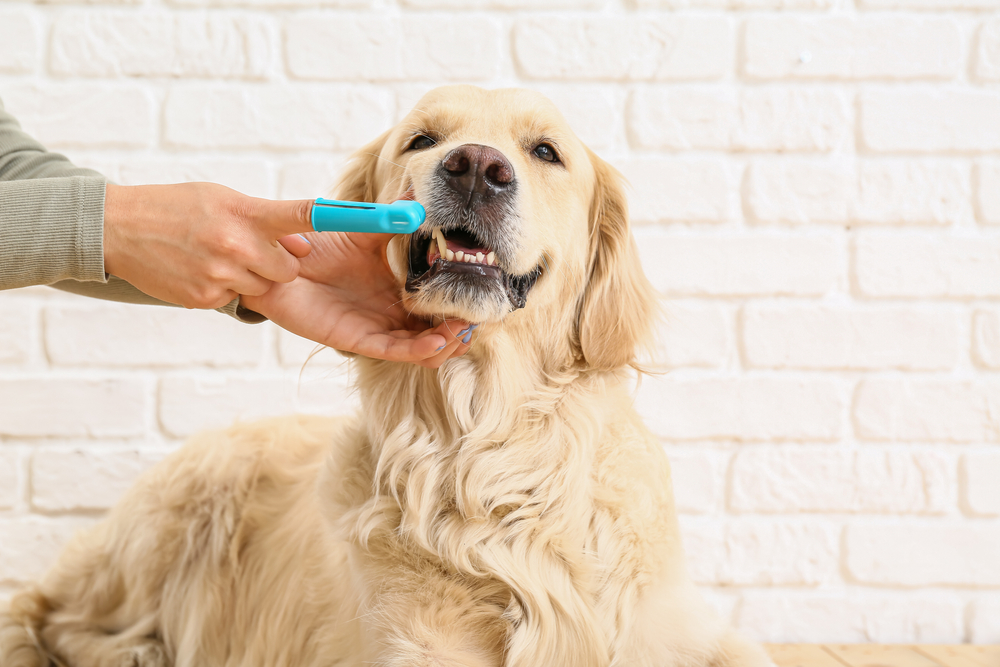Coconut oil is reported to have a huge range of health benefits for people when applied topically or given orally, but many of its potential benefits have not been thoroughly researched in dogs.
When applied to a dry nose, coconut oil can be a safe, natural balm to help soothe irritation and it’s not harmful if your dog licks a small amount from their nose. Its main benefit is as a skin moisturizer, helping improve skin hydration and relieve dry noses.
Use a small amount, which should be enough, and try to prevent your dog licking it straight off. Then, reapply daily if there are no signs of negative reactions. Below, we’ll examine the benefits of applying coconut oil to a dog’s nose and some other potential uses for it.


What Is Coconut Oil?
Coconut oil comes from the white, fibrous flesh of the coconut. It is extracted and can be bought as refined or unrefined coconut oil. It is used in various ways, including as an ingredient in food or as a cooking oil. People also use it as a topical cream, applying it to dry skin to help moisturize it.
Is It Safe for Dogs?
Coconut oil is safe to apply topically and as an ingredient in pet shampoos and conditioners. Very occasionally dogs can be sensitive to coconut applied to their skin and get a reaction, but this is rare.
Given orally it can cause digestive upset, pancreatitis and lead to obesity if fed regularly, due to the high content of saturated fat.


Applying It to Your Dog’s Nose
While it is generally best to avoid feeding coconut oil to your dog, it is considered safe for topical application to improve skin and coat condition. Try applying a very small amount initially to their nose. This enables you to determine whether your dog has a contact reaction to it. Although this is rare, if it does occur it will cause irritation and the skin around the nose might become inflamed, you should wash away any remnants while also looking to your veterinarian for an alternative treatment.
Apply a thin layer of oil and try to discourage your dog from licking it off and consuming it. The oil can be applied once or twice daily to soothe itching and help moisturize the dry skin. If your dog has ongoing issues with dry or crusty skin on their nose then you should consult with your veterinarian to check for any medical conditions that need more specific treatments.


Other Potential Uses for Coconut Oil for Dogs
There are many other suggested uses for coconut oil for your dog, both applied topically and given orally. It’s important to note that little research has been done into the health benefits of coconut oil in dogs in general so many reported benefits are anecdotal or extrapolated from human studies.
1. As a Supplement
Coconut oil is rich in fatty acids called medium chain triglycerides (MCTs), the main one being lauric acid. MCTs may have some benefits for canine health including improving brain function and aiding digestion. Lauric acid may also have some topical and oral antimicrobial effects.
If you are thinking of adding coconut oil as a regular supplement to your dog’s diet you should discuss it with your veterinarian first, and only ever use it in moderation. Excessive consumption can lead to weight gain, digestive issues and pancreatitis. It’s essential to tailor your dog’s nutrition to their specific needs.


2. As a Moisturizer
Coconut oil helps lubricate the skin. It forms a barrier over the skin, trapping moisture inside. It can reduce the irritation caused by minor dry skin issues and help prevent itching.
This can be helpful during winter when dry skin is more common. Your dog may try to lick the coconut oil, so you should be careful about the amount you use.
3. As Toothpaste
Some people use coconut oil as a natural toothpaste due to its antibacterial properties. Many dog’s enjoy the taste which can make brushing easier.
However, poor dental hygiene is a big problem in dogs, and dental disease is one of the most common issues in adult dogs. We recommend sticking to a specially formulated canine toothpaste which will be more effective and speaking to your vet for advice on the best products to use.


4. For Skin Infections
When applied topically coconut oil may also have some antibacterial and antifungal effects, and therefore may help combat various minor skin irritations and infections.
While coconut oil can have some benefits in certain cases, it should only be used as a supplementary treatment and under the guidance of your veterinarian. Coconut oil is not toxic to dogs and may offer some health advantages, but research on its usage and potential benefits is limited. It’s important to note that coconut oil is high in saturated fat and is not typically considered a healthy oil to regularly include in your dog’s diet. In the case of a dry, chapped nose, coconut oil can provide relief, but there are other options such as dog-friendly moisturizers and commercially available nose balms. If your dog’s dry nose persists, it’s best to consult with your vet to rule out any underlying health issues that may require specific treatment. given sentence: “I need to go to the store to buy some groceries.”
Rewritten sentence: “I have to run to the store to pick up a few groceries.”

